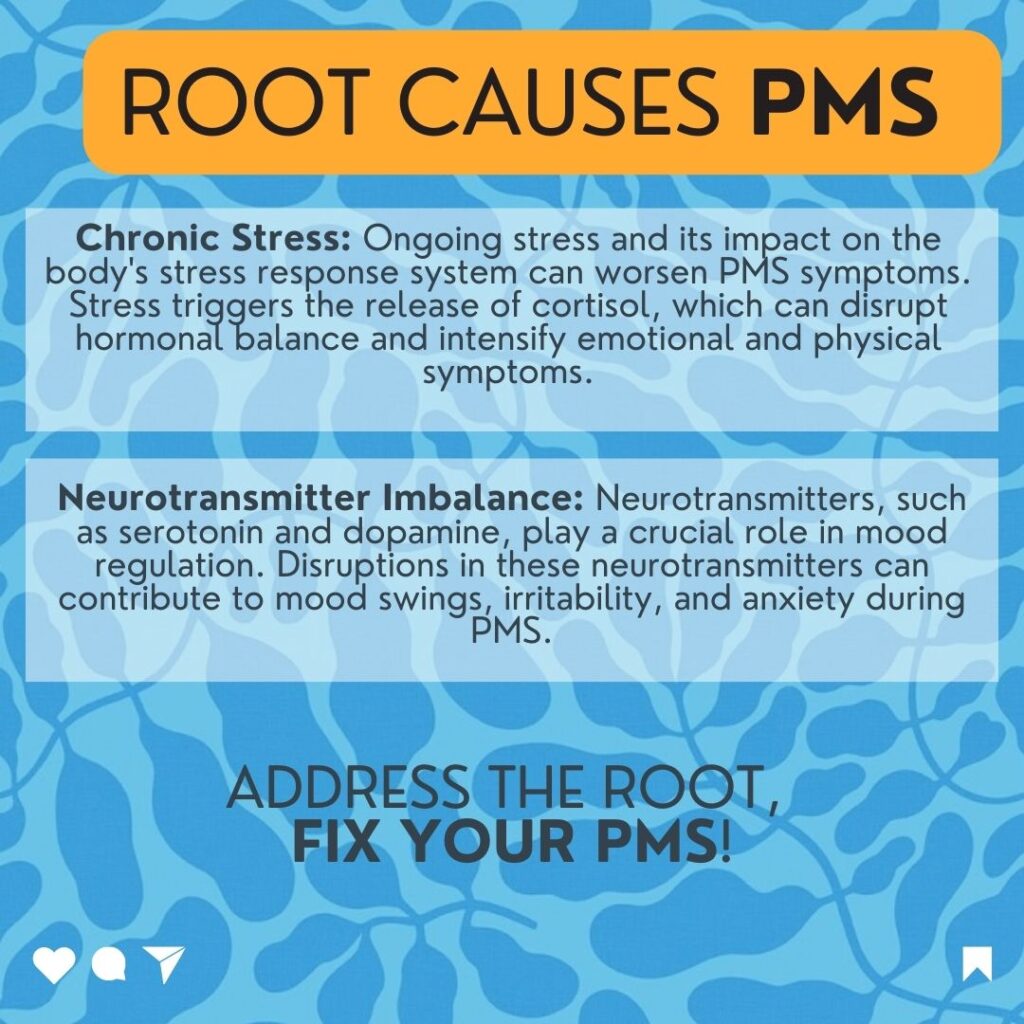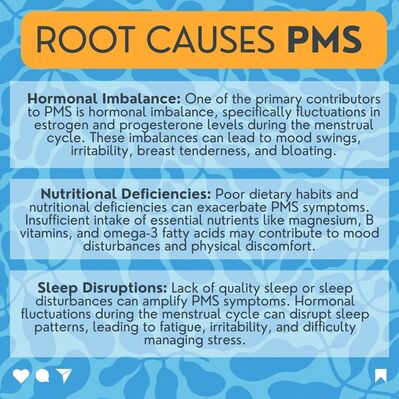- October 10, 2023
- By: Dr. Jamie Ahn


Premenstrual Syndrome (PMS) is a complex condition experienced by many women. It involves a range of physical, emotional, and behavioral symptoms that occur in the days or weeks leading up to menstruation.
While PMS is common, it’s NOT normal. Addressing the root causes of these symptoms is vital for achieving lasting relief and improved overall well-being.
🌿 Hormonal Imbalance: One of the primary contributors to PMS is hormonal imbalance, specifically fluctuations in estrogen and progesterone levels during the menstrual cycle. These imbalances can lead to mood swings, irritability, breast tenderness, and bloating.
🍽️ Nutritional Deficiencies: Poor dietary habits and nutritional deficiencies can exacerbate PMS symptoms. Insufficient intake of essential nutrients like magnesium, B vitamins, and omega-3 fatty acids may contribute to mood disturbances and painful periods.
💤 Sleep Disruptions: Lack of quality sleep or sleep disturbances can amplify PMS symptoms. Not to mention, hormonal fluctuations during the menstrual cycle can disrupt sleep patterns, leading to fatigue, irritability, and difficulty managing stress.
🌪️ Chronic Stress: Ongoing stress and its impact on the body’s stress response system can worsen PMS symptoms. Stress triggers the release of cortisol, which can disrupt hormonal balance and intensify emotional and physical symptoms.
🧠 Neurotransmitter Imbalance: Neurotransmitters, such as serotonin and dopamine, play a crucial role in mood regulation. Disruptions in these neurotransmitters can contribute to mood swings, irritability, and anxiety during PMS.
Addressing the root causes of PMS is essential for achieving lasting relief and improving the overall quality of life. While temporary symptom management (heating pads) may provide short-term relief, addressing the underlying causes can lead to more profound and sustained improvements.
In our practice, we use functional lab testing to understand what’s going on at a cellular level. This way we can develop a personalized approach to address YOUR unique imbalances and dysfunctions that are leading to your PMS symptoms.
Want to find out more? Contact our office and book an appointment today!
